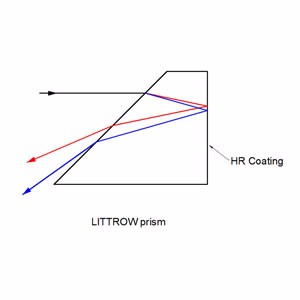Chinese tool products are easy to stand up in the Japanese market
Littrow prisms feature 30°, 60°, and 90° angles .30° - 60° - 90° Littrow Dispersion Prisms can be used for a variety of applications. Uncoated littrow dipersion prisms are used to disperse light into its component spectrum. Coated littrow dipersion prisms are used to deviate the line of sight by 60°.
Dispersion Prisms (Uncoated)
Dispersion Prism,Optical Dispersion Prisms,Beam Deviation Prisms,Inked Dispersion Prism China Star Optics Technology Co.,Ltd. , https://www.opticsrealpoo.com
Because the charm of Chinese knives is low cost, the price of Chinese tools is 20% to 30% lower than that of Japanese knives. At present, Jing Er Trading Co., Ltd. operates six brands including high-speed steel knives produced by China Changshu Tool Factory, diamond knives produced by Huanghe Cyclone, and gear knives produced by Haohan Tools Factory.
Located in Shanghai Songjiang Industrial Park, Shanghai Weishi Precision Tools (hereinafter referred to as Shanghai WSS), its parent company is the German-owned chemical manufacturer Visa Group, the main products are PCD (polycrystalline diamond) and CBN tools. In recent years, its product sales amounted to approximately 600 million yen, and its customers include Chinese subsidiaries of well-known manufacturers such as Volkswagen.
In the material cutting process, Shanghai WSS replaced the traditional wire cutting with laser, and the production efficiency has increased to 15~20 times. In addition, in the factory inspection of all products, a factory quality inspection certificate has been added, and the emphasis on product quality can be seen.
Compared with German-originated products, Shanghai WSS products are not only 30% cheaper, but even the delivery time of special products can be about one month ahead of time, which is only half the time of delivery of German products. The technical requirements of the products conform to international standards. For precision grooving turning tools, the company is the only manufacturer in China that has passed the quality standards inspection of well-known German companies. After visiting the survey, Jingkou Jingdu said that this is indeed a manufacturer with the rigorous characteristics of German-owned enterprises and high quality of products and services.
Masta, which is engaged in tool re-grinding and mold production, also gave high praise to Shanghai WSS, saying that “feeling the rigorous atmosphere of German corporate cultureâ€.
Another Chinese tool manufacturer surveyed by Jing Er Trading Company is the Zhuzhou Diamond Cutting Tool Company (hereinafter referred to as Zhuzhou Tool), the cement carbide tool manufacturer ranked first in China. Its parent company is one of the few in China. Zhuzhou Cemented Carbide Group, the former state-owned enterprise producing tungsten.
Zhuzhou Tools has greatly improved its production technology level after technical cooperation with Sweden Sandvik. With an annual output of 30 million blades, 2 million rotary knives, and 150,000 molds, it is also a well-known comprehensive manufacturing company. With annual sales of more than 14 billion yen, the company has established overseas branches since 2006 and now has more than 30 countries around the world.
The best thing about Zhuzhou's knives is its mechanical equipment. In more than 200 installations, dozens of world-class equipment are available, such as the grinding machine of Agathon, Switzerland, the tool grinder of Walter, Germany, and the tool grinder of Anka, Australia. The new plant, completed in 2008, also imported a number of new equipment such as the grinding machine from the Swiss Romanotik, which greatly increased the production capacity of the company's spiral cutters.
After inspecting the two Chinese tool companies, the Japanese customers believe that "from the perspective of equipment, it can be expected that the production capacity of the company will be improved, and the improvement of quality and the progress of production technology can be foreseen."
It is not difficult to see that the customer's point of view is to obtain the lowest cost and the fastest supply capacity based on meeting their needs.
Jingkou Shengdu said that although China is still in the stage of extensive processing, as long as it can be used flexibly, it can greatly reduce costs. In other words, the goal of Jing Er Trading is to discover and cultivate more manufacturers that meet Japanese requirements and to help Chinese manufacturers.
In his view, the era when Chinese products are "cheap and not good" and they are shut out is coming to an end sooner or later. Improving product quality and reducing costs are the last trump cards for Chinese knives in the Japanese market.
Collimated white light enters into the A-C surface of the prism, is reflected at the hypotenuse surface, and then dispersed into its component spectrum at the B-C surface. Although Littrow prisms produce narrower dispersion than equilateral prisms, Littrow prisms are typically less expensive.
Beam Deviation Prisms (Coated)
Incident light enters into the aluminum coated B-C surface of the prism at the nominal angle and returns back using the same path. In spectrum dispersion applications utilizing white light, the resolution performance of Littrow prisms is equal to equilateral prisms since the optical path length through the glass substrate is the same distance round-trip. Additionally, light entered into the A-C surface will reflect twice inside the glass substrate before being emitted through the hypotenuse surface at 60°.
